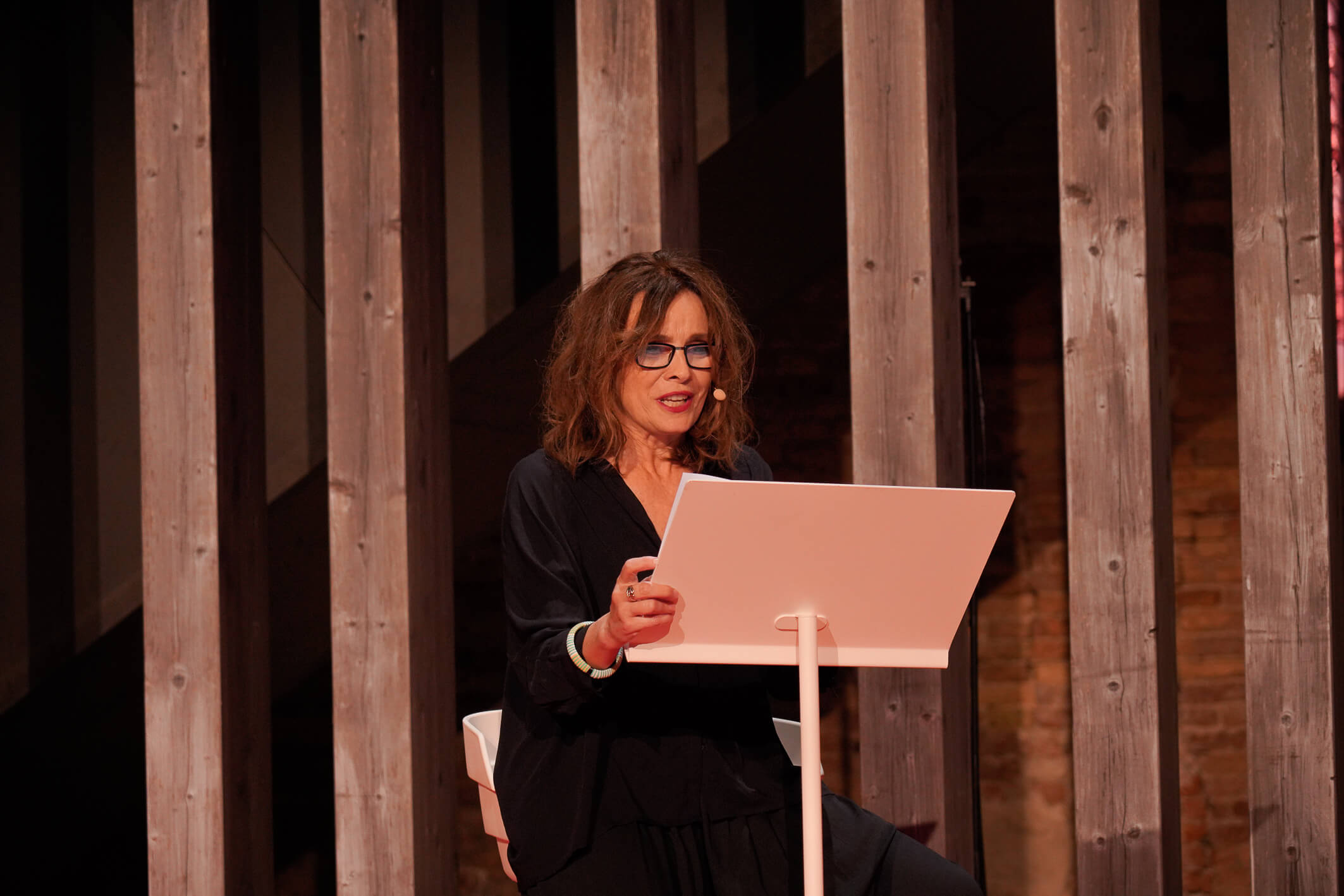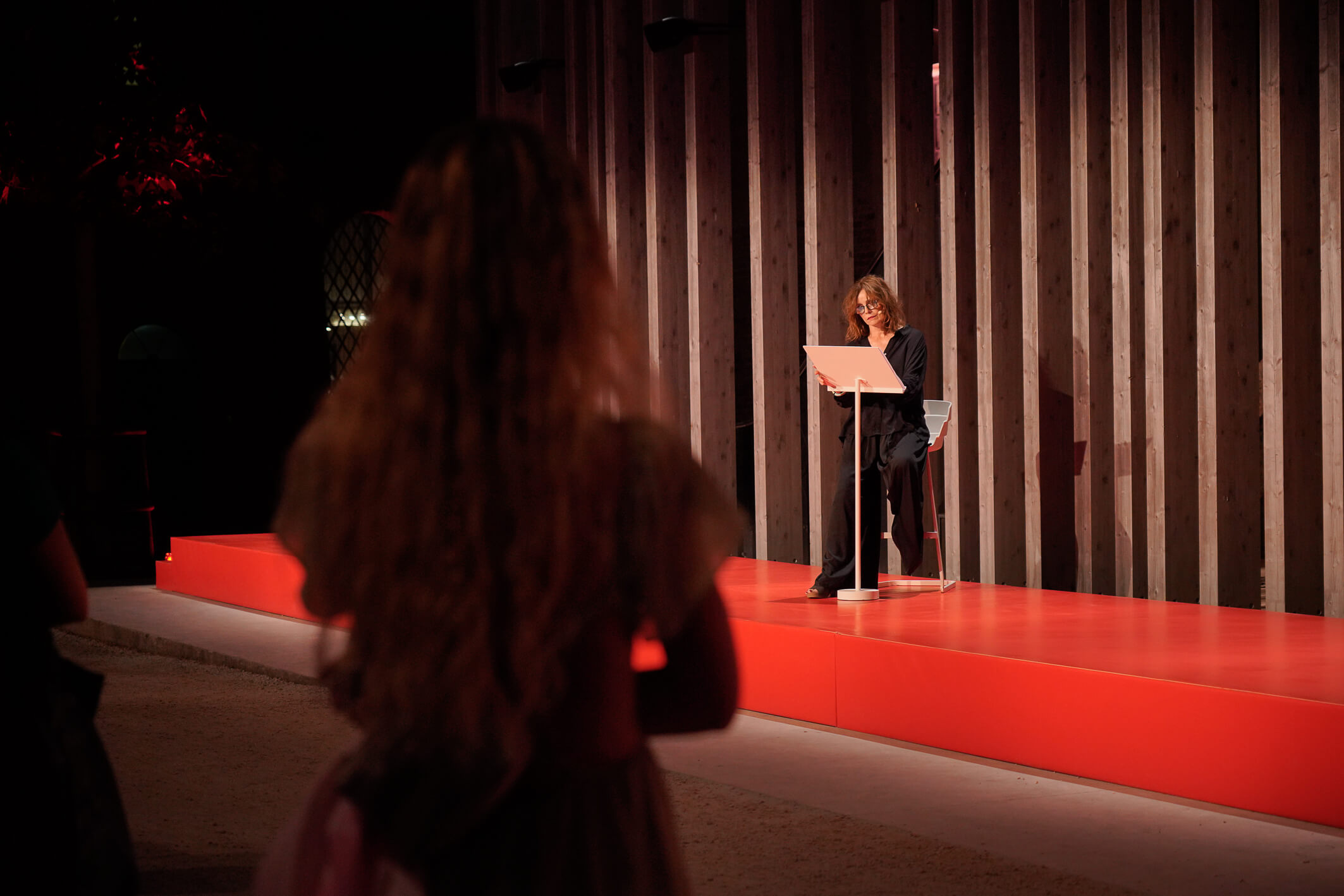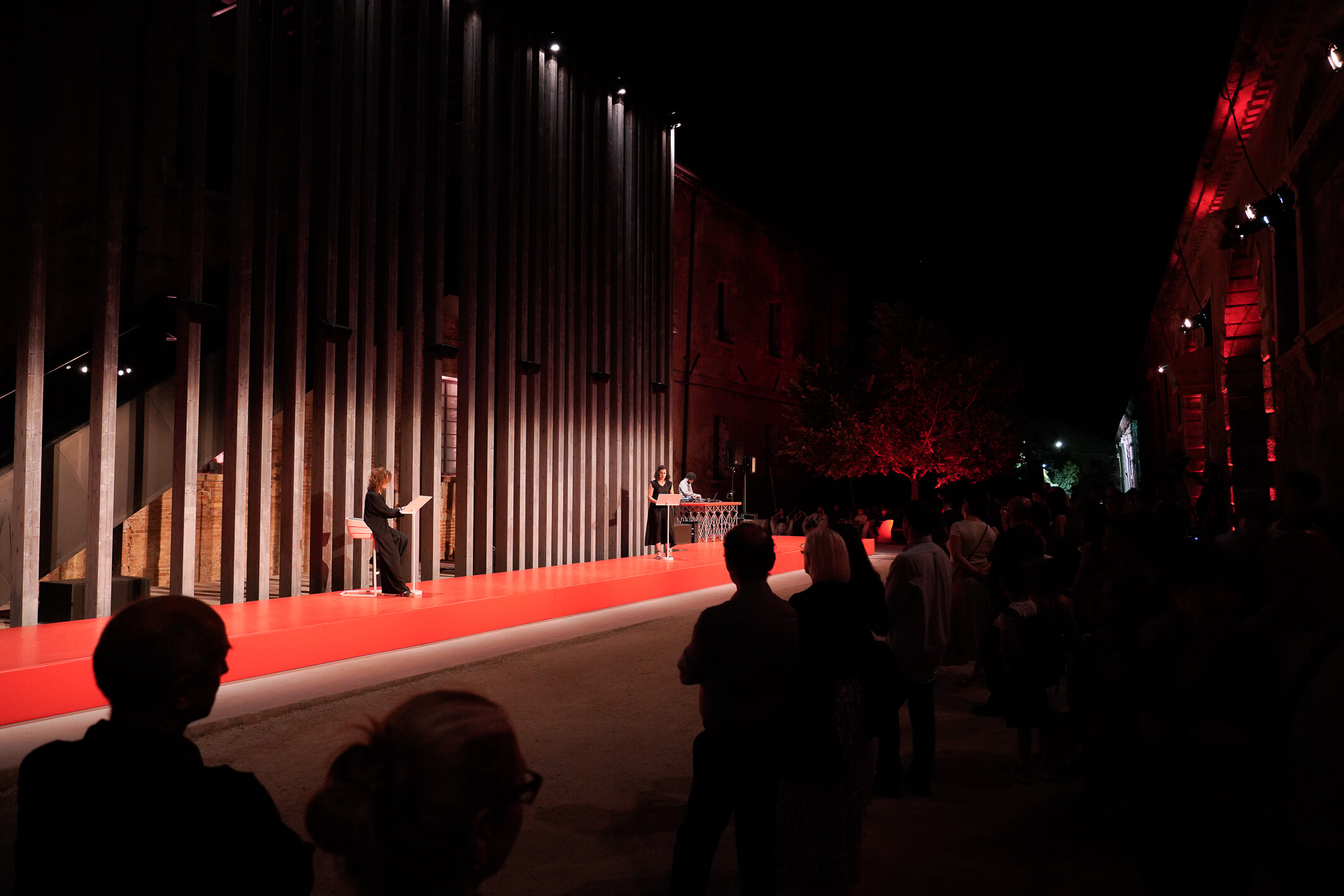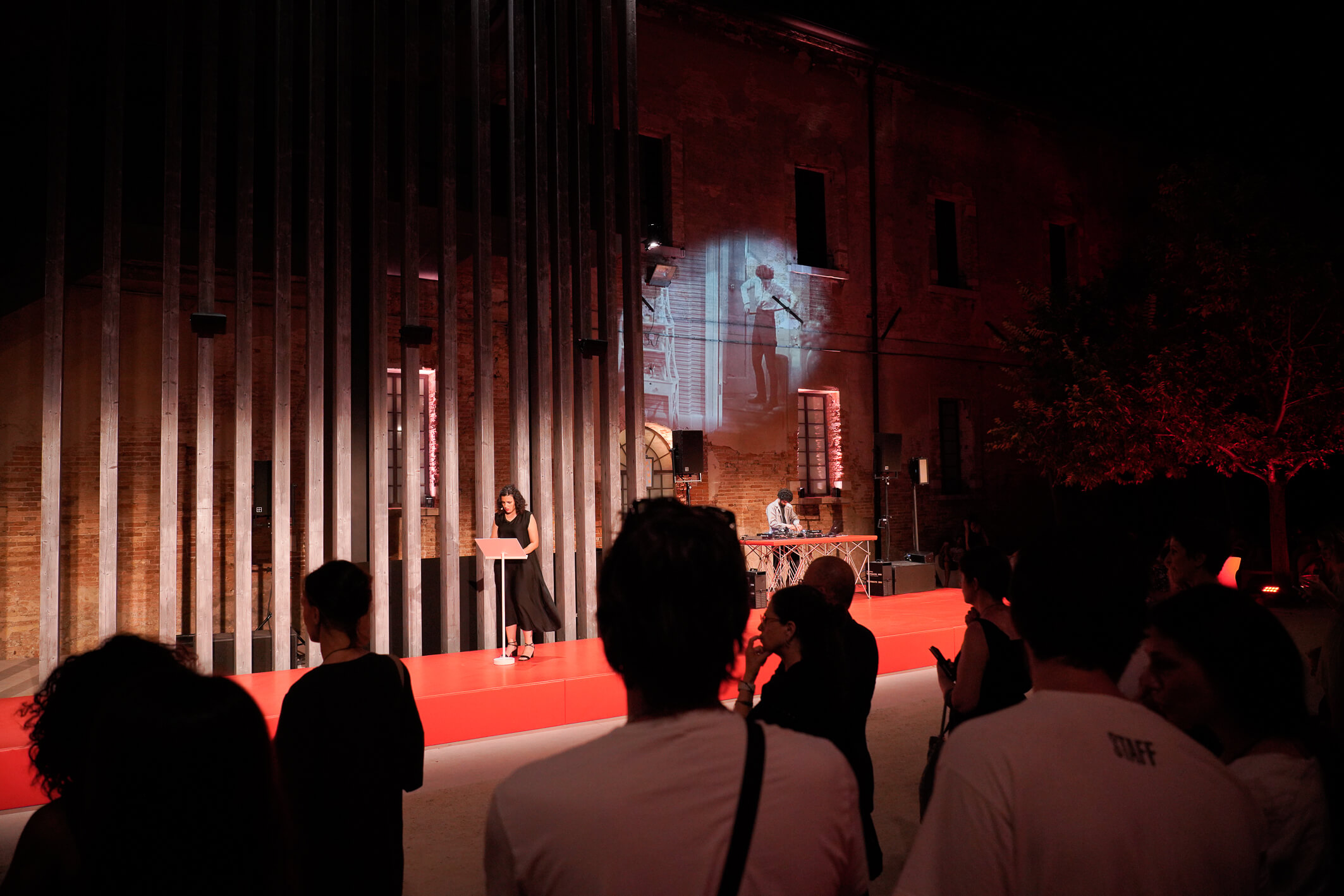A conversation with Galatea Ranzi on the dialogue between art and theatre
Galatea Ranzi
The 50th International Theatre Festival returned to Venice, under the direction of Stefano Ricci and Gianni Forte, with some of the most important representatives of the contemporary theatre scene. For the occasion, we met actress Galatea Ranzi, the protagonist and curator of “Late Hour Scratching Poetry”, a mise en lecture of Alda Merini’s most famous prose works. An ambitious project, in which the voice of a great actress interprets and gives new life to the texts of one of the greatest writers of all time.
You are an internationally renowned actress and interpreter who has worked in numerous theatre and film productions. Can you tell us about what it means to you to bring contemporary art and theatre into dialogue?
Personally speaking I believe it is essential. I feel it even more intensely being here in Venice and it doesn’t make sense why it hasn’t always be this way. I just visited the Italian Pavilion “Storia della Notte e Destino delle Comete” and explored the work of artist Gian Maria Tosatti. I was also amazed by the Uzbekistan Pavilion “Dixit Algorizmi: Garden of Knowledge”. Imagine seeing them live, even just two hours a day, in a theatrical situation, that would be beautiful. I think there could be a contamination between the arts and not only with contemporary art, this interchange can be extended to any kind of art or nature. To enliven or enrich natural places with a theatrical gesture, whether it be a literary or musical or poetic intervention, is something surprising for a spectator: introducing an additional element to something that is already, intrinsically, a spectacle – such as a beach or a forest.

In your opinion how should the relationship between drama and performance art play out today?
I perceive an interrelationship between the two: they are ‘sisters’, two sides of the same coin, forms of expressions that go hand in hand. In my opinion, there should be much more fluid and frequent communication between the disciplines. I am thinking of the Centrale Montemartini in Rome: it is an old, disused electrical power station with some wonderful cast-iron materials at rest, in a space that is also architecturally very beautiful in which they have inserted Roman artefacts. A splendid example of the conversion of an industrial archaeology building into a museum, in which I also had the honour of doing a show: this interrelation between moments, places, disciplines should be the order of the day. In general, I think that in labelling artistic and theatrical expressions, one runs the risk of setting them against each other and impoverishing them, so this dialogue also clearly applies to the performance arts and theatre!

Over the past few days, on the occasion of the Biennale Teatro 2022 Festival, you have been on stage with an ambitious programme entitled “Late Hour Scratching Poetry” – which you curated in its entirety over the eight central evenings. It is a reading from texts by Alda Merini, mainly taken from “La pazza della porta accanto” and “L’altra verità. Diario di una diversa”. Can you tell us about your curatorial approach?
Exactly, for this project Liliana Massari and I collaborated both in the drawing up of the script and in the rehearsals with the young actresses we involved on stage. Two other texts from which we have drawn a lot from are ‘Lettere a un racconto’ and ‘La vita facile’. Each of these texts by Alda Merini has a very fragmentary and mixed rhythm: we move from one subject to another, occasionally poems are inserted, there are returns to memories of the past. Recurring themes have emerged, for example each evening there is a delving into the tale of the time of the asylum. There are also recurring characters: Titan, Pierre, Manganelli. In approaching this material, a dramaturgy has gradually been created.

This project sees the collaboration of the Accademia Nazionale d’Arte Drammatica “Silvio d’Amico”, the institute from which you also graduated in 1988. On stage, you bring with you young performers from the same university, to enliven the voices of the poetess Alda Merini. What does it mean to you to share the stage with other young actresses and what advice have you given them in approaching the texts of such a multifaceted soul, naively rebellious and at the same time mature?
The idea of involving a group of eight young actresses came from the artistic directors of Biennale Teatro, Ricci Forte. They truly care for the younger generations as integral to their mission, this I support wholeheartedly. Last year I gladly took part in a Biennale Teatro College masterclass, a fertile space for the transmission of knowledge and reciprocal training between master and student. The proposal to involve a selected group of young women was therefore immediately welcomed by me. The more I penetrated into Alda Merini’s world, the more I found this choice right because Alda is always in dialogue with her younger self: living very much from memories and recollections, she’s often linked to her youth, which is always mentioned and remembered in her writings. A youth that was very formative, like those of most of us. Consequently, the decision to stage two voices at the same time, one more mature and one younger, made what we represented very organic.

As the editorial team of My Art Guides, we are bringing to life a playlist that we share with our readers. Can you tell us the title of some songs you love?
Whenever I am asked this question for a moment my whole playlist disappears from my mind! But I have a few… when preparing for the readings of Alda Merini for these evenings of the festival, I found so much beauty in Allegri’s “Misere mei, Deus” that it takes me to other dimensions. Finally, there is that song that occasionally breaks into the course of the readings… “Per chi dorme solo” by Milly.
I could mention many more. Songs are a very important life partner!




